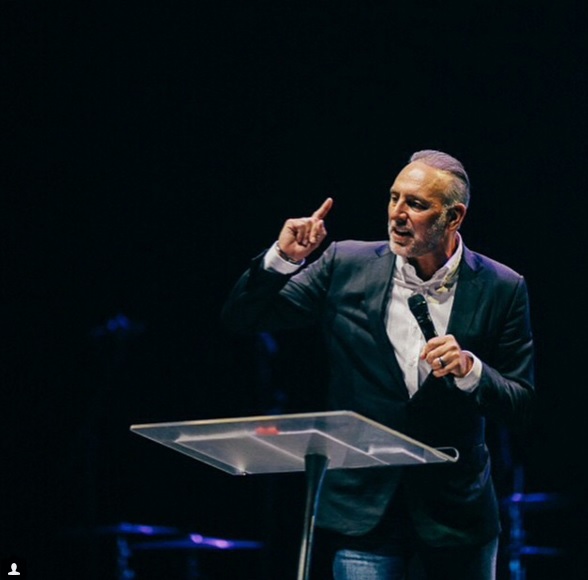Hillsong has a 'no tolerance' policy on paedophiles, Brian Houston tells Royal Commission

Hillsong will not tolerate paedophiles in any shape or form, according to the church's founder Brian Houston.
Houston's own father Frank, a Pentecostal Assenblies of God pastor, who died in 2004, confessed in 1999 and 2000 to sexually abusing boys in New Zealand three decades earlier.
He told Australia's child abuse royal commission that Hillsong has 'zero tolerance' for paedophiles.
'For a long, long time I've been extremely vocal that no convicted paedophile, nobody who's made any kind of confession of inappropriate behaviour towards children, is welcome at Hillsong Church at all," he said, according to Australian Associated Press.
'On numerous occasions we've told people they can't come to church.
'We've got a no tolerance policy on paedophiles because we have a massive children's ministry, obviously, and young persons ministry, so we just don't believe that it's the right place for them to be.'
Frank Houston was confronted by Brian in 1999. He admitted the offence but Brian Houston and the national executive of the Assemblies of God in Australia failed to inform police.
The church learned of more abuse the following year and at that point, Frank Houston was banned from preaching.
Hillsong has now introduced a 'conflict of interest' procedure.
The commission found Brian Houston had a conflict in assuming responsibility for dealing with the 1999 allegation because he was both Assemblies of God in Australia national president and the son of the alleged perpetrator, AAP reported. Assemblies of God is now called Australian Christian Churches.
Houston told the commission: 'We have been very, very supportive of the goal to make sure our church is as safe a church as it could possibly be.'
Wayne Alcorn, president of Australian Christian Churches, said its 1,000 autonomous affiliated churches had all adopted and adhere to child protection policies: 'It is no longer optional. There are minimum standards and we require them. We quickly moved to change the culture and practice of our movement.'











